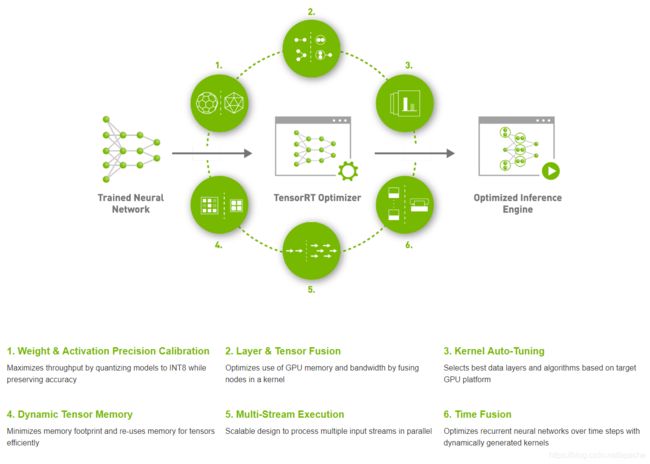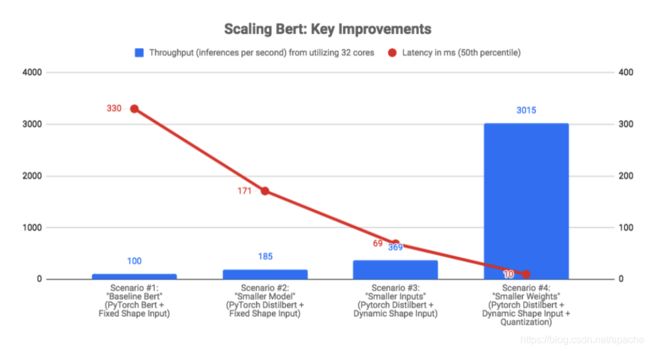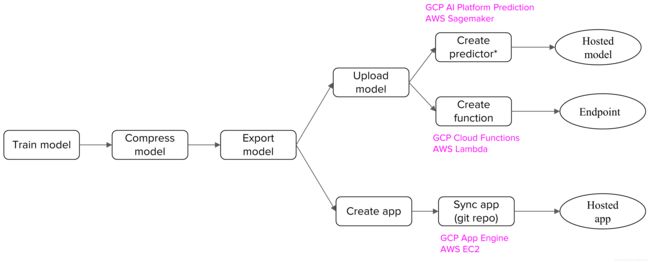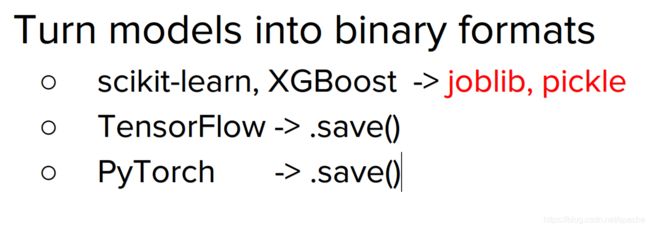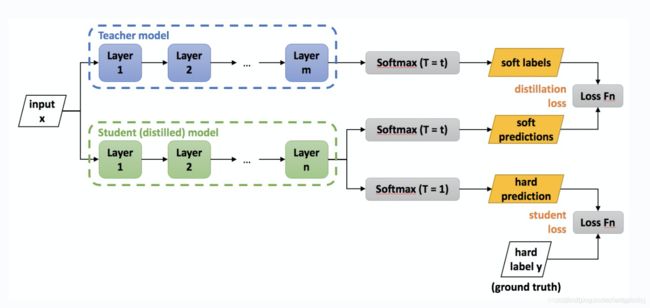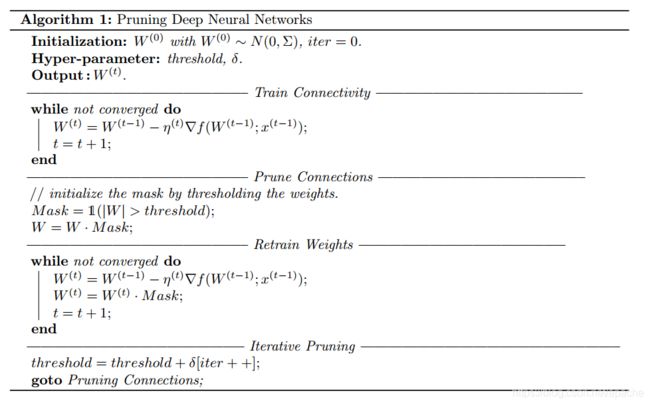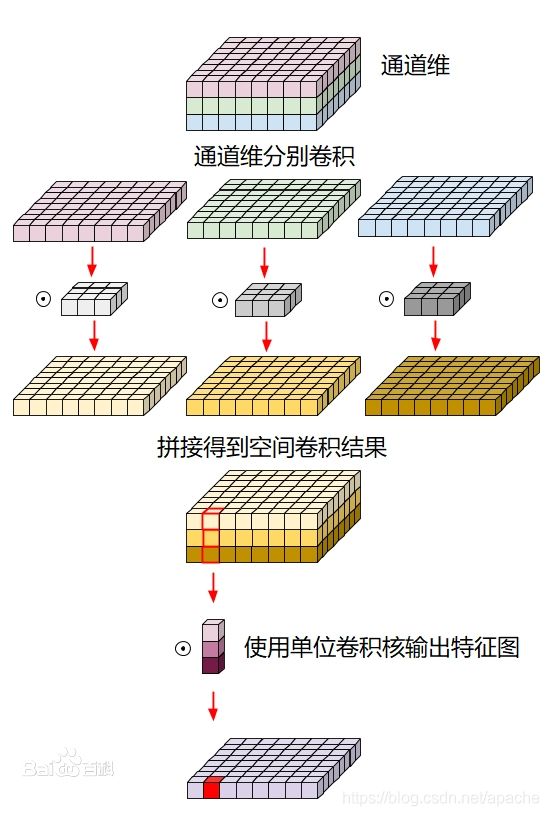神经网络模型的压缩,优化及部署;Model compression & optimization, deployment
Model deployment,compression & optimization
No matter how great your ML models are,if they take just milliseconds too long,
users will click on something else.
-模型研究、训练和 模型推理是一对矛盾
Model Research& Train: Better, bigger, slower,hardware more powerful
Model inference: faster,smaller,IOT/mobile/constrained computing
=Make models faster
-Inference optimization
NVIDIA TensorRT
TensorRT is a SDK/C++ library that facilitates high-performance inference on GPUs.
TensorRT Started: https://developer.nvidia.com/tensorrt-getting-started
TensorRT download https://developer.nvidia.com/nvidia-tensorrt-download
Documents : https://docs.nvidia.com/deeplearning/tensorrt/archives/index.html
https://github.com/NVIDIA/TensorRT
Ubuntu1804+CUDA10.0安装TensorRT7
https://blog.csdn.net/u011681952/article/details/105973996
-Make models smaller
-Model Compression
-1.Quantization 2. Distillation 3.Pruning 4.Low-ranked factorization
-Make models smaller: case study
How We Scaled Bert To Serve 1+ Billion Daily Requests on CPUs
https://robloxtechblog.com/how-we-scaled-bert-to-serve-1-billion-daily-requests-on-cpus-d99be090db26
https://blog.roblox.com/2020/05/scaled-bert-serve-1-billion-daily-requests-cpus/
-Deploy a model on cloud
-Export a model
-Turn models into binary formats
-部署方式:
hosted Model,App,Endpoint
-Containerized deployment
-Creating a Docker image with Dockerfile
-Container registry
-Container: microservices
Kubernetes: container orchestration
-
=Test
Canary testing
A/B testing
Interleaved experiments
Shadow testing
==================================================
faster:Inference optimization
NVIDIA TensorRT
https://developer.nvidia.com/tensorrt
start: https://developer.nvidia.com/tensorrt-getting-started
guide: https://docs.nvidia.com/deeplearning/tensorrt/developer-guide/index.html
github https://github.com/NVIDIA/TensorRT
TensorRT is a C++ library that facilitates high-performance inference on NVIDIA graphics processing units (GPUs). It is designed to work in a complementary fashion
with training frameworks such as TensorFlow, Caffe, PyTorch, MXNet, etc.It focuses specifically on running an already-trained network quickly and efficiently on a GPU
for the purpose of generating a result (a process that is referred to in various places as scoring, detecting, regression, or inference).
=================================================
smaller:Model Compression
-韩松Han Song博士2015年在斯坦福/英伟达发表的Deep Compression是模型压缩方面很重要的论文。
在Deep Compression中,作者提出三种方法来进行模型压缩:剪枝,量化和霍夫曼编码。
==1.Quantization
神经网络模型量化论文小结
https://blog.csdn.net/u012101561/article/details/80868352
Tensorflow模型量化(Quantization)原理及其实现方法
https://zhuanlan.zhihu.com/p/79744430
==2. Distillation
以DistilBert为例:
Distillation效果: 模型尺寸减少40%,语言理解能力保留97%,速度提升60%.
-
Softmax modify:
-模型训练方式:
-三重损失函数Loss:
蒸馏Loss,语言模型Loss,余弦距离Loss
-
--
BERT蒸馏,DistilBERT、Distil-LSTM、TinyBERT、FastBERT(论文+代码)
https://blog.csdn.net/qq_38556984/article/details/109256544
TinyBERT蒸馏:小模型在只有原始BERT模型13%参数量的情况下,推断加速达到9倍,
同时在自然语言处理标准评测GLUE上获得原始BERT模型96%的效果。
TinyBERT: 面向预训练语言模型的知识蒸馏方法
https://bbs.huaweicloud.com/blogs/195703
https://blog.csdn.net/fengzhou_/article/details/111433457
DistilBert解读
https://blog.csdn.net/fengzhou_/article/details/107211090
Bert瘦身之DistilBert
https://zhuanlan.zhihu.com/p/126303499
知识蒸馏(Knowledge Distillation),Law-Yao
https://blog.csdn.net/nature553863/article/details/80568658
=================================================
GPT优化
-
==3.Pruning
剪枝对应这篇论文:Learning both Weights and Connections for Efficient Neural Networks。
具体讲,剪枝将模型中不重要的权重设置为0,将原来的dense model转变为sparse model,达到压缩的目的。
论文使用三步方法修剪冗余连接:
首先,训练网络以了解哪些连接很重要。接下来,修剪不重要的连接。最后,重新训练网络以微调其余连接的权重。
在ImageNet数据集上,我们的方法将AlexNet的参数数量减少了9倍,从6100万到到670万,而不会造成准确性损失。
-解决什么问题
如何在不损失精度的前提下,对DNN进行剪枝(或者说稀疏化),从而压缩模型。
-why剪枝work
为什么能够通过剪枝的方法来压缩模型呢?难道剪掉的那些连接真的不重要到可以去掉吗?论文中,作者指出,DNN模型广泛存在着参数过多的问题,具有很大的冗余。
-怎么做剪枝
作者的方法分为三个步骤:
- Train Connectivity: 按照正常方法训练初始模型。作者认为该模型中权重的大小表征了其重要程度;
- Prune Connection: 将初始模型中那些低于某个阈值的的权重参数置成0(即所谓剪枝);
- Re-Train: 重新训练,以期其他未被剪枝的权重能够补偿pruning带来的精度下降;
为了达到一个满意的压缩比例和精度要求,2和3要重复多次。
-算法流程摘自Han Song博士论文
-对神经元进行剪枝
将神经元之间的connection剪枝后(或者说将权重稀疏化了),那些0
输入0输出的神经元也应该被剪枝了。然后,我们又可以继续以这个神经元出发,剪掉与它相关的connection。
这个步骤可以在训练的时候自动发生。
Deep Compression: Compressing Deep Neural Networks with Pruning, Trained Quantization and Huffman Coding,
https://arxiv.org/abs/1510.00149
Learning both Weights and Connections for Efficient Neural Networks
https://www.groundai.com/project/learning-both-weights-and-connections-for-efficient-neural-networks/
https://xmfbit.github.io/2018/03/14/paper-network-prune-hansong/
==4.Low-ranked factorization
-以MobileNets为例:
-MobileNets是Google针对手机等嵌入式设备提出的一种轻量级的深层神经网络;重点在于压缩模型,同时保证精度。
深度可分卷积(depthwise separable convolution)是卷积神经网络中对标准的卷积计算进行改进所得到的算法,
其通过拆分空间维度和通道(深度)维度的相关性,减少了卷积计算所需要的参数个数,并在一些研究中被证实提升了卷积核参数的使用效率 。
深度可分卷积分为两部分,首先使用给定的卷积核尺寸对每个通道分别卷积并将结果组合,该部分被称为depthwise convolution,
随后深度可分卷积使用单位卷积核进行标准卷积并输出特征图,该部分被称为pointwise convolution。
-
- depthwise separable convolution :depthwise convolution + pointwise convolution
MobileNets是基于一个流线型的架构,它使用深度可分卷积算法来构建轻量级的深层神经网络。
深度可分离卷积depthwise separable convolution,它是一种可以分解的卷积:可以将标准卷积分解为深度卷积depthwise convolution和逐点卷积pointwise convolution。
简单理解就是矩阵的因式分解。深度卷积将每个卷积核应用到每一个通道,而1 × 1卷积用来组合通道卷积的输出,这种分解可以有效减少计算量,降低模型大小。
-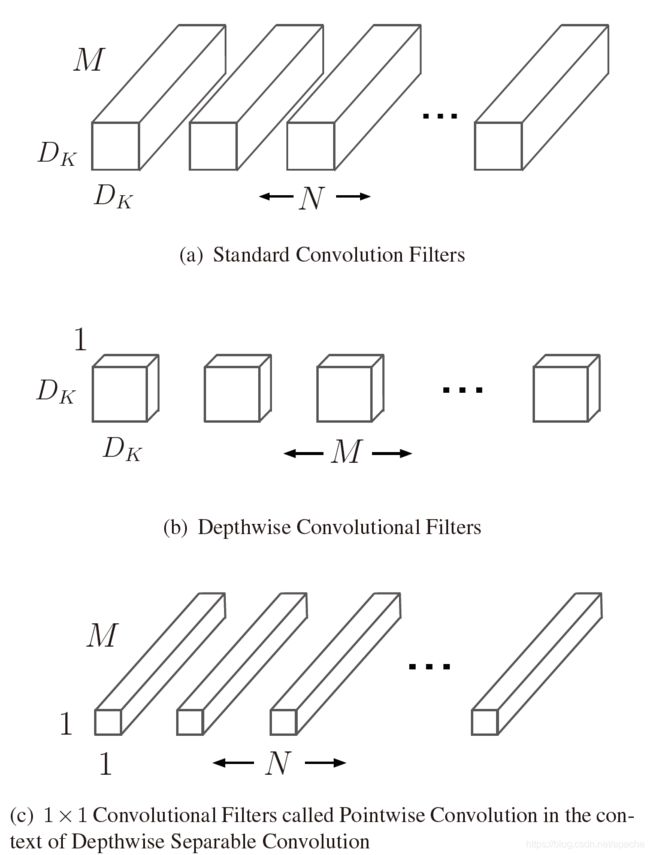
- 图a中的卷积核就是最常见的3D卷积,分解为deep-wise方式:一个逐个通道处理的2D卷积(图b)和一个3D的1*1卷积(图c)
-可以这样理解:
-
MobileNets: Efficient Convolutional Neural Networks for MobileVision Applications
https://arxiv.org/abs/1704.04861
https://blog.csdn.net/u010349092/article/details/81607819
网络解析(二):MobileNets详解
https://cuijiahua.com/blog/2018/02/dl_6.html
轻量化网络:MobileNets
https://blog.csdn.net/u011995719/article/details/78850275
【完】
====================================================================
====================================================================
Deep Compression: Compressing Deep Neural Networks with Pruning, Trained Quantization and Huffman coding,
https://arxiv.org/abs/1510.00149
韩松博士毕业论文Efficient methods and hardware for deep learning论文详解
https://blog.csdn.net/weixin_36474809/article/details/85613013
All The Ways You Can Compress BERT
http://mitchgordon.me/machine/learning/2019/11/18/all-the-ways-to-compress-BERT.html
A Survey of Methods for Model Compression in NLP
https://www.pragmatic.ml/a-survey-of-methods-for-model-compression-in-nlp/
